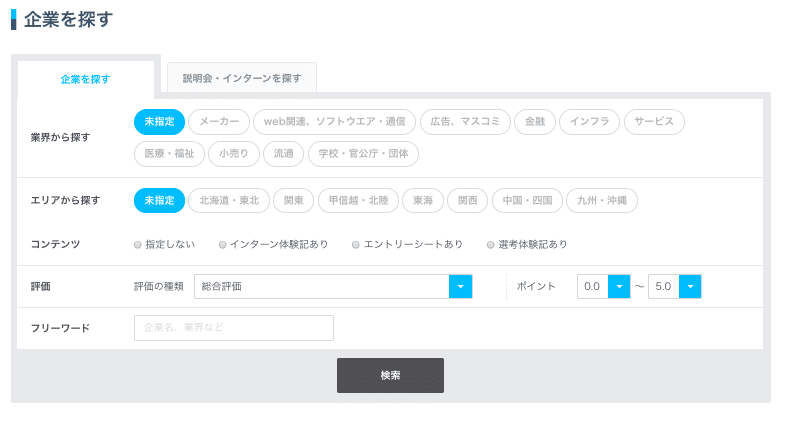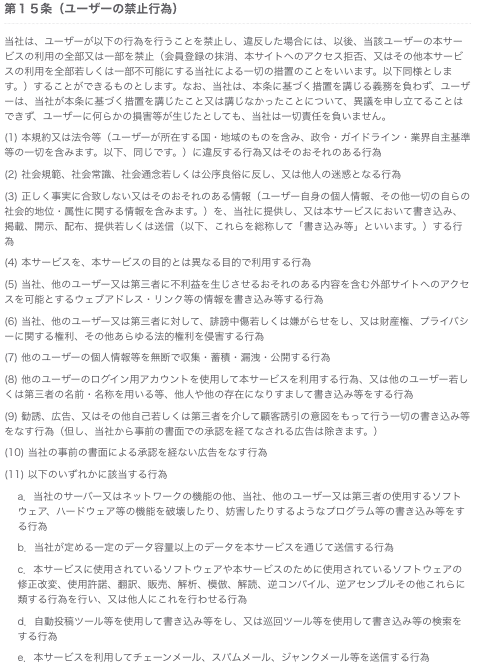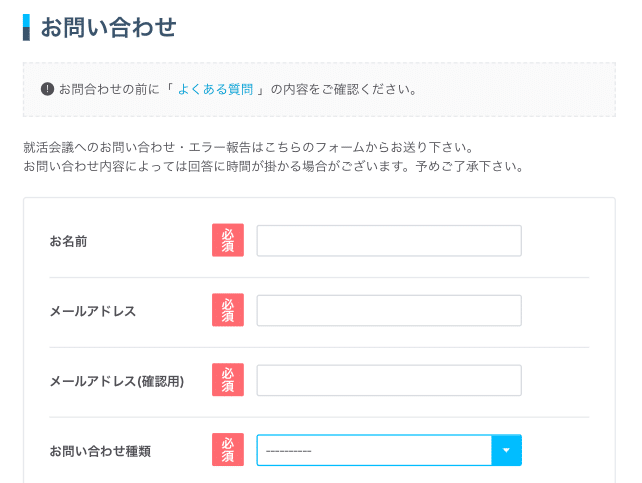What are the Methods to Remove Negative Reviews of 'Shukatsu Kaigi'?

When companies are recruiting or students are job hunting, it is common these days to use job search websites. Through these sites, students can research company information and reputations, while companies can promote themselves to students and gather information about them. Job Hunting Conference is one such job search site, where you can read information about companies and reviews of their selection process. Job Hunting Conference features a variety of reviews and information, from positive to negative, providing students with real-life experiences. However, for companies, if negative reviews are written and spread, it could potentially harm recruitment activities and business management. In this article, we will discuss measures to manage reputational damage in the event of defamatory reviews being posted on Job Hunting Conference.
Explanation on Job Hunting Conference
The Job Hunting Conference is a job hunting review site for job seekers, operated by Livesense Inc. On the Job Hunting Conference, you can view reviews on the business content, annual income, and evaluation system of companies you are interested in. You can also read Entry Sheets (ES) that have passed the final selection and internships, making it a strong ally for company research and selection measures. One of the biggest features is that the content is the same as the “Job Change Conference”, a job change site operated by the same company. Therefore, you can read not only the raw voices of those who were employed, but also reviews on the “reasons for resignation”. Most people who have resigned have some negative reasons for doing so, and negative information such as “overtime was a given” or “there was no prospect for career advancement” is often written. The selling point of the Job Hunting Conference is that you can read such honest reviews, which is beneficial for job seekers, but it can have a negative impact on companies, such as leaving a bad impression or being avoided. In addition, if slanderous comments are posted, it could lead to significant damage such as a decline in corporate image and loss of trust from customers and shareholders. In this article, we will explain what kind of negative reviews can be posted on the Job Hunting Conference and how to deal with them when they are posted.

What Kind of Reputational Damage Can Occur on Job Hunting Conference?
Job Hunting Conference is a review site centered on user posts, so it is possible that negative reviews may be posted. The main use of reviews on Job Hunting Conference is on the “Reviews & Ratings” page for each company. Below, we introduce the content of negative reviews and reputational damage that can be expected there.

Job Hunting Conference is a review site centered on user posts, so it is possible that negative reviews may be posted. The main use of reviews on Job Hunting Conference is on the “Reviews & Ratings” page for each company. Below, we explain the content of negative reviews and reputational damage that can be expected there.
Reviews Accusing of Power Harassment or Sexual Harassment by Superiors
Job Hunting Conference posts the raw voices of people who have actually worked, so the focus is on what they felt during their work. It is conceivable that seniors who have suffered harassment at work and had a hard time may post their experiences as reviews, hoping that no one else will have to go through the same thing. Accusations about working conditions, such as long overtime hours and salary issues, can also be considered. However, for companies, such posts can negatively affect recruitment and hinder their hiring activities. Especially if the company is taking measures to improve working conditions or punishing employees who have committed harassment, it is undesirable for such posts to continue to exist as they do not reflect the actual situation.
Reviews Using Definitive Expressions, Differing from Facts, or Malicious
For example, reviews that include definitive expressions such as “The company has no future and will definitely go bankrupt within 2 years!”, “If you voice your opinion to the president, you will definitely be fired”, “The company is the worst. No decent person would work there”. Such definitive expressions can stoke job-hunting students’ anxieties and significantly lower the company’s image, despite the lack of evidence. Unfortunately, there seem to be actual cases where former employees who left the company with grievances post reviews with the intention of attacking and obstructing the company. Such reviews are not clear about what is true, use definitive expressions to lower the company’s social evaluation, and have a large negative impact. They should be deleted.
Reviews Containing Defamation Against Specific Individuals
Another possible issue is reviews that include defamatory descriptions against specific individuals. For example, “A person named A in the accounting department smells bad and is an ugly employee I hate”. Such expressions are not at all beneficial for job-hunting students and are merely attacks on specific individuals. For those who may suffer damage to their reputation or other harm due to such posts, it is desirable to have them deleted as soon as possible.
How to Request Removal for Violation of Terms of Use

Terms of Use for “Job Hunting Conference”
Article 15 (Prohibited Actions by Users) of the Terms of Use for Job Hunting Conference lists prohibited actions. If the review you want to remove falls under any of these items, it could be subject to removal.

How to Request Removal
Job Hunting Conference does not have a dedicated form or button for reporting violations. Therefore, you will need to report violations through the general inquiry form.

Example of Requesting Removal for Violation of Terms of Use
Proceed with filling out the inquiry form as instructed. For the type of inquiry, use “Report of Problematic Content”. In the content of the inquiry, indicate the URL of the post you want to remove, and specifically explain why part of the post is problematic, so that it is easy for the Job Hunting Conference side to identify. Also, if you can show that it violates the terms of use, there is a higher chance of it being removed, so carefully check whether the post violates the terms of use and strive to write a polite explanation.
For this example, we will use a review that includes defamation against a specific individual, such as “I hate this employee named A in the accounting department because she smells and is ugly”. You could write the explanation as follows:
Thank you for your attention. I am △△, in charge of recruitment at XX Securities Co., Ltd.
I would like to request the removal of this review.
In the third line of this review, it is written that “The person named A in the accounting department smells and is ugly…”. This is irrelevant to job hunting and the company, and it falls under “Providing information contrary to facts” in Article 16, Item 14 of the Terms of Use. Even if such a fact exists, a post including such a disclosure is not content that helps in choosing a hospital, which is the purpose of the workplace report, and falls under “Disclosure regarding violations, accidents, problems, etc.” in Guideline 5. Such posts have a negative impact on our recruitment and corporate activities, so we would like to request removal. Thank you for your cooperation.
However, Article 15 of the Terms of Use states,
“Please note that we are not obligated to take measures based on this article, and users cannot object to whether or not we have taken measures based on this article, and we will not be responsible for any damage or the like that may occur to users.”
This means that whether or not to remove is at the discretion of Job Hunting Conference, and they are not obligated to remove. If the post is not removed even after requesting removal, you may consider requesting a transmission prevention measure against Job Hunting Conference or considering litigation. These are legal matters, so you will need to handle them yourself or consult with a lawyer. Be careful when entrusting to a removal agent other than a lawyer, as it may lead to a violation of the law.
Requesting Removal on the Grounds of Illegality
Legal Measures Available
If the content infringes on rights or violates the law, you can dispute the removal through a lawyer in court. The legal measures that can be taken in relation to online reputation damage control can be broadly divided into:
- Request for voluntary removal through transmission prevention measures
- Request for post deletion and provisional disposition
- Request for disclosure of sender information (IP address disclosure request, name and address disclosure request)
- Claim for damages (claim for damages after identifying the poster)
Among these, the requests directly related to deletion are the request for transmission prevention measures, the request for post deletion, and the application for provisional disposition.
Legal Claims to Make
So, when making a legal request for deletion, the first thing to consider is to make a claim of “defamation”. Defamation is established when:
- It is “public”
- It “indicates a fact”
- It “damages a person’s reputation”
All of these conditions are met. For example, if a review based on untrue content such as “It’s normal not to get paid for overtime at this company” is posted, let’s look specifically at whether it meets the requirements 1 to 3. First, posts on review sites like job hunting conferences, as in this case, can be said to be “public” because they are placed in a state where an unspecified number of people can view them on the Internet. Next, “indicating a fact” means telling a concrete fact that is sufficient to lower a person’s social evaluation, regardless of whether it is true or false. In this case, the content that the company is not paying overtime indicates that the company is violating the Labor Standards Act, which can be said to be sufficient to lower its social evaluation.
Finally, to “defame”, it is sufficient if there is an abstract risk of harm to social evaluation, and it is not necessary for the reputation to be actually infringed. It is not necessary to prove that the post in question was viewed by an unspecified number of people on Internet news and SNS, and that criticism and protests flooded the company. It is enough to say that there is an objective risk.
Please refer to the following article for detailed requirements for the establishment of defamation and other details.
https://monolith.law/reputation/defamation[ja]
Removal through Legal Proceedings (Lawsuits and Provisional Measures)

In cases such as defamation, the usual approach to request removal due to legal violations is to first request a transmission prevention measure. However, this method of requesting removal without going through the courts seeks voluntary removal by the site administrator or operating company (provider). As this is a voluntary measure, depending on the judgment, removal may not be carried out. In contrast, through legal proceedings, if removal is approved in court, the provider will be compelled to comply with the removal due to the binding force of the judgment. Therefore, if a transmission prevention measure is not approved, it is effective to transition to legal proceedings. Provisional measures are methods stipulated in the Japanese Civil Preservation Law, and are used to seek temporary measures before obtaining a final judgment through a formal lawsuit when a quick resolution is required.
In cases like this, where slanderous reviews and the like can cause irreparable damage once they spread, it is effective to use the provisional measures system to seek the removal of information as soon as possible. When a provisional disposition order is issued, the court orders the other party to remove the post, so the other party must comply with the removal. In the case of provisional measures, if you consult with a lawyer who has expertise in reputation damage countermeasures, in many cases, removal can be achieved in about 2-3 months from the time of request, making it an effective measure. For more detailed explanations about the removal of articles in cases of slander and reputation damage, and the procedure for provisional measures, please refer to the article below.
https://monolith.law/reputation/provisional-disposition[ja]
Identifying the Poster through Provisional Disposition
In order to take the legal measures mentioned above, it is necessary to identify who made the post, including their name and address. However, most defamation on the Internet is done anonymously, making it difficult to identify the person (sender) who made the post. Therefore, it is necessary to ask the provider to disclose the personal information of the person who made the post in order to identify them. This is what is known as identifying the poster through provisional disposition. A request for sender disclosure is a request for information disclosure to identify the poster, as stipulated by Article 4, Paragraph 1 of the “Japanese Provider Liability Limitation Act”. If you request a lawyer, there is a possibility that the poster’s information, such as their IP address, can be disclosed through this sender information disclosure request, and the poster can be identified. Once the poster is identified, it is possible to take legal measures such as making the person pledge not to defame in the future due to the damage caused by the defamatory post, claim for damages, or file a criminal complaint.
The flow of these procedures is explained in detail in the following article.
https://monolith.law/reputation/disclosure-of-the-senders-information[ja]
Summary
The Job Hunting Conference website values the ability to gain real company information through word-of-mouth. It is also a site that widely accepts negative posts, as it clearly states on the site that even critical posts are considered very important information for job hunting decisions. However, if reputational damage occurs due to malicious reviews, legal measures may be taken to resolve the issue, such as deleting the post. However, the method and claim to be made, and whether deletion is allowed, varies depending on the individual case. In any case, claiming illegality involves specialized content and methods, making it difficult for individuals to do so, and it also becomes a legal act, so the help of a lawyer is necessary. First, consult with a lawyer to determine whether the review in question infringes on rights or violates the law.
Category: Internet





















